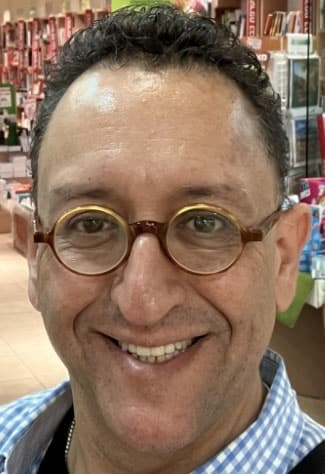I will never forget July 12, 1984. That was my first day on the Ketziot basic training base, my new "home" as an Israel Defense Forces (IDF) soldier in the Givati Infantry Brigade. One by one we were issued what was then the standard IDF infantry weapon, the Israeli-made Galil submachine gun. Here we were, 18-year-old kids who barely knew anything about life, and being entrusted with weapons that had the potential to save lives or to take lives.
Once we all received our weapons, we were gathered into a room where an officer was waiting to address us. We expected a lesson on the mechanics of the Galil rifle. Instead, the officer had come to speak to us about a concept that is unique to the IDF — "Tohar Ha’Neshek," the "Purity of the Weapon." This concept was defined by the officer as the difference between the moral use of the weapon and the immoral use of the weapon.
When asked for the IDF’s understanding of the difference between "the moral and immoral use of the weapon," the officer responded, "Well, I’m not a particularly religious person, but I guess the best way to explain it is the difference between a Kiddush Ha’Shem (sanctification of God’s name) and a Chilul Ha’Shem (desecration of God’s name)."
The terms Kiddush Ha’Shem and Chilul Ha’Shem used by the IDF officer have their origins in Parashat Emor, where regarding God’s name, the Torah commands: "You shall not desecrate my holy name (Lo t’chalelu — hence Chilul Ha’Shem), rather I shall be sanctified (Ve’nikdashti — hence Kiddush Ha’Shem) among the Israelites" (Leviticus 22:32).
Maimonides interprets this verse as applying to "the whole House of Israel," and actually lists two commandments in this regard:
1) "You shall not desecrate." This is the prohibition of Chilul Ha’Shem, a commandment not to do anything to give God or the Torah a bad name.
2) "I shall be sanctified." This is the commandment of Kiddush Ha’Shem, to enhance the reputation of God and his Torah.
After the officer’s lecture about the purity of the weapon, I remember one soldier commenting that he found it odd that an officer who describes himself as "not particularly religious" would employ such religious terminology as Chilul Ha’Shem and Kiddush Ha’Shem to explain the proper use of a weapon. It is odd, unless we remember that the IDF soldier, religious or secular, is representing the Jewish state, which, according to its own Declaration of Independence, is "based on the precepts of liberty, justice and peace taught by the Hebrew Prophets."
My unit found itself in Southern Lebanon six months later. We had been well-trained in responding to ambushes on our traveling convoys, and the Galil weapon we were issued had unfortunately gotten its fair share of real-life wear and tear.
One day, we were attacked by a surprise explosion, which, it turned out, was not an ambush of gunfire or rockets but a suicide bomber in a car. Not having known that this was the nature of the attack, we responded like we were taught — jump out of the vehicle and return fire. Within moments, it became clear that the ambush did not involve anybody having fired on us, so we were immediately ordered to hold our fire.
When one of the soldiers screamed out, "What do you mean hold our fire? Look how many of our people have been injured," the response from the officer was, "There are civilians in the nearby refugee camp. We have no need or interest in injuring or killing them."
There was no CNN camera there for the officer to be saying that to, just the driving force of Tohar Ha’Neshek. Now I understood the lecture of six months earlier. Now I understood what the Torah means by a Kiddush Ha’Shem. P.S. The officer who gave us the order to hold our fire was not religious.























 More news and opinions than at a Shabbat dinner, right in your inbox.
More news and opinions than at a Shabbat dinner, right in your inbox.